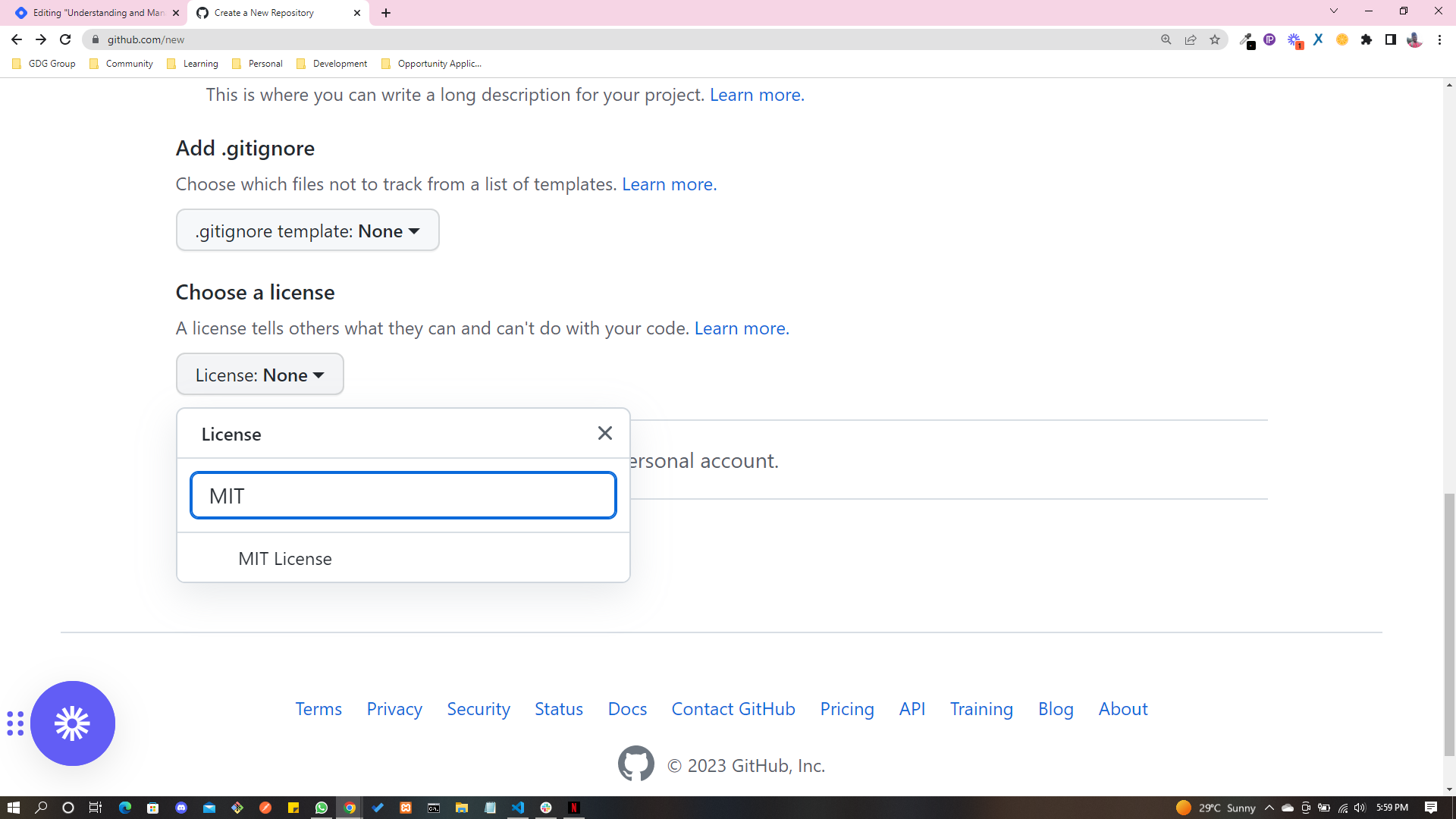Understanding and Managing Open Source Licenses for Your Project
 Stephen Paul
Stephen PaulAs a software developer, using open-source libraries and tools in your projects can be extremely beneficial. Open-source projects can save you time and effort by providing pre-written code that can be easily integrated into your work. However, with the benefits of open source come important responsibilities to ensure that your use of these resources is compliant with the licensing agreements under which they are released.
In this post, we'll explore what open-source licenses are, why they're important, and how to manage them effectively in your projects.
What are Open Source Licenses?
Open-source licenses are agreements that dictate how open-source software can be used, distributed, and modified. They define the rights and obligations of both the user and the creator of the software. There are many different types of open-source licenses, including the popular MIT License, Apache License, and GNU General Public License (GPL).
Why are Open Source Licenses Important?
Open source licenses are important because they protect the creators of the software by specifying how their work can be used, distributed, and modified. They also ensure that users of the software understand the rights and obligations they have when using the software.
For example, some open-source licenses allow the software to be used freely in any way the user sees fit, while others place restrictions on how the software can be modified and distributed. Understanding the licensing agreements under which a piece of software is released is critical to using it legally and ethically.

How to include an open-source license in a GitHub repository.
Here's an example of how to include an open source license in a GitHub repository using the MIT License as an example:
Create a file called
LICENSEin the root of your repository.Copy the text of the MIT License into the
LICENSEfile:The MIT License (MIT) Copyright (c) [year] [copyright holder] Permission is hereby granted, free of charge, to any person obtaining a copy of this software and associated documentation files (the "Software"), to deal in the Software without restriction, including without limitation the rights to use, copy, modify, merge, publish, distribute, sublicense, and/or sell copies of the Software, and to permit persons to whom the Software is furnished to do so, subject to the following conditions: The above copyright notice and this permission notice shall be included in all copies or substantial portions of the Software. THE SOFTWARE IS PROVIDED "AS IS", WITHOUT WARRANTY OF ANY KIND, EXPRESS OR IMPLIED, INCLUDING BUT NOT LIMITED TO THE WARRANTIES OF MERCHANTABILITY, FITNESS FOR A PARTICULAR PURPOSE AND NONINFRINGEMENT. IN NO EVENT SHALL THE AUTHORS OR COPYRIGHT HOLDERS BE LIABLE FOR ANY CLAIM, DAMAGES OR OTHER LIABILITY, WHETHER IN AN ACTION OF CONTRACT, TORT OR OTHERWISE, ARISING FROM, OUT OF OR IN CONNECTION WITH THE SOFTWARE OR THE USE OR OTHER DEALINGS IN THE SOFTWARE.Add a reference to the
LICENSEfile in the repository'sREADMEfile:
This project is released under the MIT License. See the [LICENSE](LICENSE) file for more information.
By including the license file and referencing it in the README file, you are making it clear to users of your code what the terms of the open-source license are. This makes it easier for others to understand and use your code, while also helping to ensure that your use of open-source software is compliant with the licensing agreements.
It's also important to keep in mind that different open-source licenses have different terms and conditions, so it's important to choose the right license for your project. Some popular open-source licenses include:
The MIT License: A permissive license that allows users to use, modify, and distribute the software as they see fit, as long as the original copyright and license notices are included.
The Apache License 2.0: A permissive license that requires users to include a notice about the use of Apache-licensed software in any distributions of the software.
The GNU General Public License (GPL): A copyleft license that requires any derivative works of the software to be licensed under the same terms as the original software.
The BSD License: A permissive license that allows users to use, modify, and distribute the software, as long as the original copyright and license notices are included.
When choosing an open-source license for your project, consider the goals of your project and the level of control you want to have over how your code is used. If you want to encourage widespread use and collaboration, a permissive license like the MIT or Apache License may be a good choice. If you want to ensure that derivative works of your code remain open source, a copyleft license like the GPL may be a better choice.
In any case, it's important to carefully read and understand the terms of the license you choose and to make sure that you include the license file and reference it in your README file. By doing so, you can help ensure that your use of open-source software is compliant with the licensing agreements and that others can easily understand and use your code.
How to Manage Open Source Licenses in Your Projects
Managing open-source licenses in your projects is an important step in ensuring that your use of open-source software is compliant with the licensing agreements. Here are some steps you can follow to manage open-source licenses effectively:
Review the Licensing Agreement: Before you use an open-source library in your project, review the licensing agreement carefully to understand the rights and obligations you have when using the software.
Keep Track of the Licenses: Make sure to keep a record of the licenses for each open-source library you use in your project. This will make it easier to ensure that you are complying with the licensing agreements as your project evolves.
Include a License File in Your Project: Many open-source licenses require that a copy of the license agreement be included with the software. Make sure to include a copy of the license in your project, either in the code or in a separate file.
Give Credit Where Credit is Due: Many open-source licenses require that you give credit to the creators of the software. This can typically be done by including a note in your project's README file or by adding a comment in the code.
By following these steps, you can effectively manage open-source licenses in your projects and ensure that your use of open-source software is compliant with the licensing agreements.
Example of Open Source License Management in GitHub
Many open-source projects are hosted on GitHub, which provides tools for managing open-source licenses. Here's an example of how you can include a license file in your GitHub repository:
Choose a License: First, choose an open-source license that fits the needs of your project. You can find a list of open source licenses on the GitHub Choose a License page.
Add the License to Your Repository: Once you've chosen a license, you can add it to your repository by creating a file named "LICENSE" and including the text of the license in the file.
Include a Reference to the License in Your README: To give credit to the creators of the software, including a reference to the license in your repository file, either in the form of a link to the license file or a statement indicating that the project is released under a specific open source license.
Update the License as Needed: As your project evolves, make sure to review the licensing agreement and update the license file and README as needed.
By using GitHub to manage open-source licenses, you can ensure that your project is compliant with the licensing agreements and that users of your software understand the rights and obligations they have when using your code.
Managing open-source licenses in your projects is an important step in ensuring that your use of open-source software is compliant with the licensing agreements. By following the steps outlined in this post and using tools like GitHub, you can effectively manage open-source licenses and ensure that your projects are successful and legally sound.
Subscribe to my newsletter
Read articles from Stephen Paul directly inside your inbox. Subscribe to the newsletter, and don't miss out.
Written by

Stephen Paul
Stephen Paul
Software Developer, Product Manager, Technical Writer, and Developer Relations | #IamRemarkable Gold Facilitator | Empowering Developers and Driving Innovation